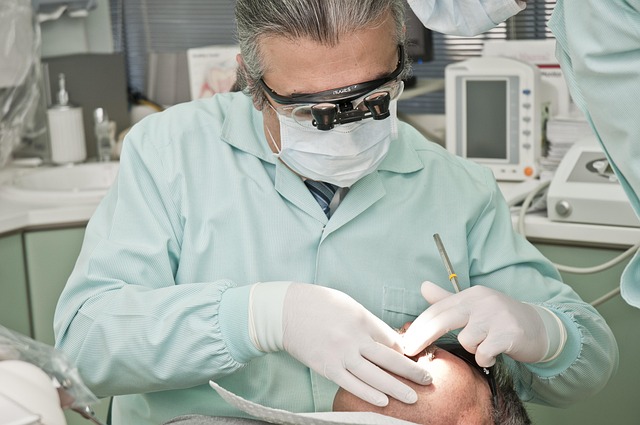Dental assistants are significant members of the oral healthcare team. They work closely with dentists to ensure every appointment runs smoothly. Dental assistants set up instruments, keep things clean, and guide patients through their visits. They make sure each appointment runs smoothly and comfortably, supporting both the dentist and the patient every step of the way.
In general dental practices, assistants may handle routine procedures like chairside support during cleanings, X-rays, and exams. In specialty settings—such as orthodontics, oral surgery, or pediatrics—they assist with more focused treatments and tools. Their day-to-day tasks might shift based on the clinic’s needs, but accuracy, hygiene, and patient safety remain the constant priorities.
To enter this field, most dental assistants complete a formal training program, often followed by certification. The most common credentials include the Certified Dental Assistant (CDA) and Expanded Functions Dental Assistant (EFDA) designations. These not only raise professional credibility but also open doors to higher roles and pay scales. In this blog, we will discuss how much dental assistants earn, what affects their salary, and where the role is headed in today’s job market.
Why Dental Assistants Are in Demand?
The dental field has changed quickly over the last few years. More people now seek dental care not just for health reasons, but for appearance and lifestyle too. This shift has expanded the role of dental assistants and made them more essential than ever. As dental care expands and more services become available, the need for qualified dental assistants keeps growing nationwide. People are now more aware of how important regular checkups are, and that means busier clinics. From local offices to larger practices, having trained assistants on hand is key to keeping things running smoothly and meeting patient needs. Dental assistants help manage the flow of patients, speed up care, and maintain safe, clean workspaces.
There’s also a sharp rise in preventive and cosmetic procedures. From fluoride treatments and sealants to teeth whitening and aligners, modern dentistry goes beyond fillings and extractions. Dental assistants play a hands-on role in both everyday care and cosmetic treatments, helping practices run smoothly across the board.
What also sets this career apart is the variety—it’s common to find dental assistants working not just in private clinics, but also in public clinics, mobile units, and specialized areas like orthodontics or surgery. This kind of flexibility adds real value to the profession.This variety means more job opportunities and steady growth across urban and rural areas alike.
Also Read: How Are Coworking Spaces Ideal for Entrepreneurs?
Average Salary of Dental Assistants in the U.S.
Understanding how much dental assistants earn gives a clear picture of the profession’s value in the healthcare system. Salaries vary by location, experience, and role—but the national data sets a reliable baseline. Whether you’re just entering the field or growing your career, knowing the pay range helps set realistic expectations and goals.
National Median Salary and Hourly Wage
According to the latest U.S. Bureau of Labor Statistics (BLS) reports, the median annual salary for dental assistants is around $47,300 and hourly rate is approx. $22.74. These figures apply to full-time positions in places like general dental offices, specialty clinics, and public health centers. In some states, pay tends to be higher due to stronger demand, higher living costs, or stricter licensing rules.
US News also supports this range, listing dental assisting as one of the top-support healthcare roles with strong earnings and job outlook. Hourly wages can be even higher in high-demand areas like California, Washington, and Minnesota—where pay may reach $25 to $30 per hour for skilled assistants.
Entry-Level vs Experienced Pay Brackets
For those new to the field, starting salaries typically range from $36,000 to $40,000 per year. These roles often include on-the-job training and basic responsibilities. As experience builds, so does earning potential.
Experienced dental assistants—especially those with certifications like CDA or EFDA—can earn $50,000 to $60,000 annually. In federal facilities or surgical practices, wages may go even higher. With added responsibilities, years of hands-on practice, and advanced training, top earners in the field often see consistent raises and expanded roles.
Benefits and Chances for Advancement
Dental assistants receive a lot of benefits and perks other than a paycheck. Many positions come with added benefits and chances to grow in the field. It’s a career that brings both stability and the opportunity to move forward. Whether someone sticks with general practice or chooses to branch into a specialty, the path becomes even more rewarding with time and hands-on experience.
Common Workplace Benefits for Dental Assistants
Most full-time dental assistants receive a strong package of employee benefits, which may include:
- Paid Time Off (PTO) — Including vacation days, sick leave, and sometimes personal time
- Health Insurance — Coverage often includes medical, dental, and vision plans
- Retirement Plans — Many practices offer 401(k) or similar options for long-term savings
- Uniform and Equipment Stipends — Some employers provide or reimburse work attire and gear
- Continuing Education Support — Paid courses or reimbursement for career advancement
These perks add real value beyond the paycheck and contribute to job detainment and satisfaction.
Career Advancement
Dental nurses are not limited to general practice only, in fact, they can excel in areas like dental surgery, orthodontics, or pediatric dentistry by having right training and expertise. However, such career growth offers new challenges and come with more responsibility and better pay. Each specialty comes with unique tools, techniques, and patient care strategies. Specialization often brings higher pay, more responsibility, and a change of pace from routine general practice.
How Certifications Improve Salary and Role
Certifications like CDA (Certified Dental Assistant) or EFDA (Expanded Functions Dental Assistant) can increase your impact and value in the job market with a significant effect. These certifications show employers that you’ve honed advanced skills and meet national standards. With certification, assistants often earn $2 to $5 more per hour and qualify for tasks such as placing fillings, polishing teeth, or assisting in more complex procedures. This not only boosts income but also opens doors to supervisory or lead assistant roles in many clinics.
Factors That Affect a Dental Assistant’s Salary
Dental assistant salaries are not the same across the board. Many factors influence how much a person can earn in this role. These include location, experience, and the type of dental practice. Knowing what shapes your pay can help you plan a smarter career path and take steps to increase your income.
Here are the main factors that impact salary:
- State and Location
Pay varies widely from one state to another. Assistants in high-cost states like California, Oregon, or Alaska often earn more than those in rural or southern regions. Metropolitan areas also tend to offer higher wages due to demand and living costs. - Experience and Years in the Field
Entry-level assistants usually start on the lower end of the pay scale. With more years on the job, hands-on experience, and continued training, salaries rise steadily. Most assistants see noticeable increases after 3 to 5 years in the field. - Clinic Type and Practice Setting
Assistants working in private practices may earn less than those in federal or specialty clinics. Group dental offices, surgical centers, and orthodontic practices often pay higher rates and offer better benefits due to the nature of care provided. - Certifications and Added Responsibilities
Holding credentials like CDA or EFDA often leads to better-paying roles. These assistants can take on more advanced tasks, which justifies higher wages and puts them ahead of non-certified peers. - Work Schedule and Hours
Dental assistants working full-time usually earn more and receive stronger benefits than those in part-time roles. Some clinics also allow extra hours on weekends or evenings offering high-stipend.
These dental nurses can make informed decisions by understanding these possible factors. They can decide where to work, how to grow, and what steps to take to improve their earning potential.
Career Outlook and Job Stability
The dental assisting profession continues to show strong signs of long-term growth. As oral health becomes a greater priority in preventive care, demand for skilled support staff keeps increasing. This trend makes dental assisting a reliable choice for those seeking a stable and high-rewarding healthcare role. Job perspects remain bright for the next decade or beyond even if you’re thinking to make a career shift.
Comparison to Similar Healthcare Roles
According to recent projections, dental assisting is expected to grow by about 8% through 2033, which is faster than the average for all occupations. Each year, over 55,000 openings are estimated due to retirements, role changes, and the overall expansion of dental services. When compared to similar roles—such as medical assistants or pharmacy techs—dental assistants often benefit from more hands-on clinical work, faster certification paths, and steady employment options across public and private settings. This balance of training time, job security, and future opportunities makes dental assisting a solid healthcare career path.
Final Thoughts: Is Dental Assisting a Good Career Choice?
Dental assisting is a dependable career that offers both purpose and opportunity. It comes with steady pay, growing job openings, and the chance to work directly with patients in a variety of settings—whether in private practices, community clinics, or dental specialties.
If you’re thinking about this path, it’s one of the more accessible roles in healthcare. You can sharpen your skills and increase your income having certifications from CDA or EFDA. Taking the time to explore job options in your area and enrolling in a trusted training program can help you move forward with confidence and a clear sense of direction.
If you’re ready to explore opportunities in dental assisting or related healthcare roles, turn to a trusted source for support and guidance. Visit Intuitive Health Services to learn more about how you can start your journey toward a fulfilling and stable healthcare career.

